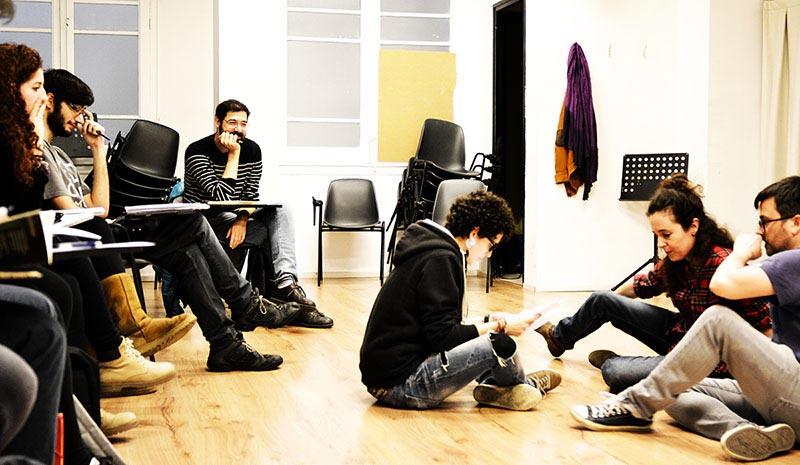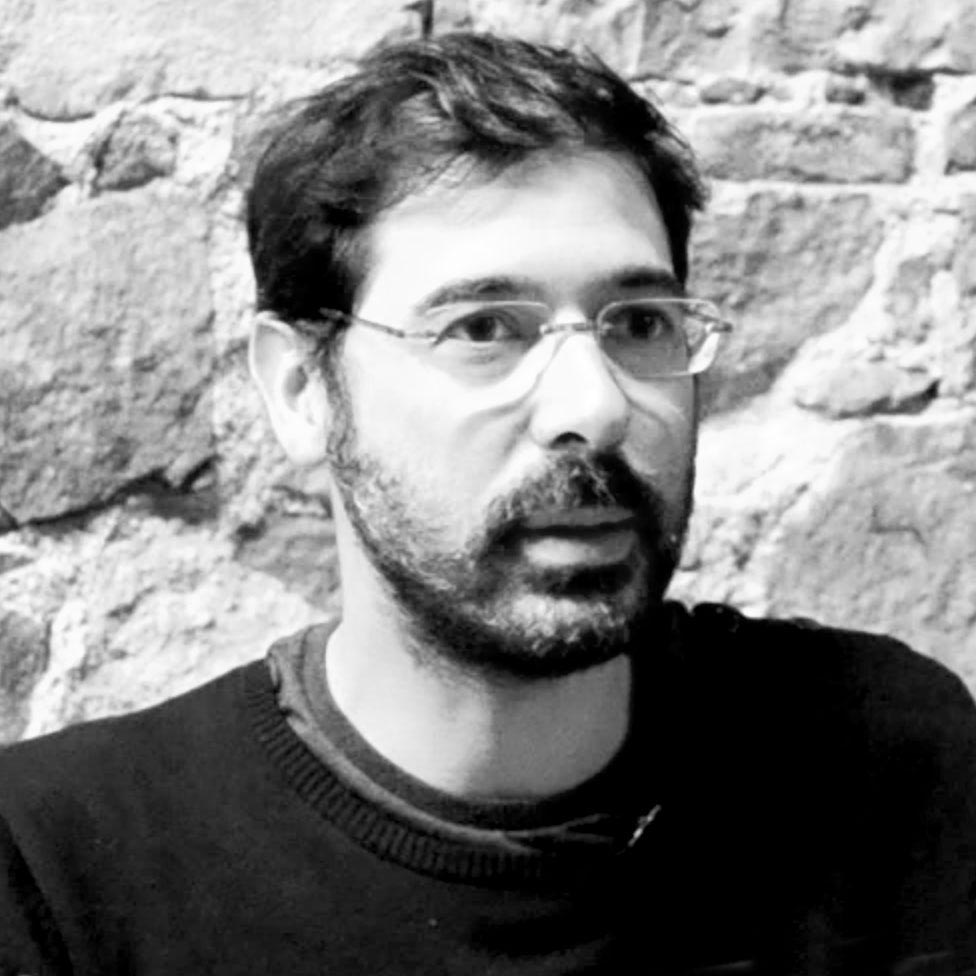Jordi Prat i Coll
Degree in Audiovisual Communication from UPF and in Stage Direction and Dramaturgy from the Institut del Teatre. Theater director, playwright, translator and pedagogue. He has directed shows at the Teatre Lliure, the Sala Beckett and the Sala La Planeta. Professor of Stage Direction and Dramaturgy at ESAD Eòlia.
What do you need to be a director or playwright?
Above all, good luck! When a person chooses the career they want to study, it is because they feel that something attracts them to this field. It seems that if you are interested and want to dedicate yourself to theater, acting is the logical way, but let's not forget that there is another, also very creative, which is the path of direction and dramaturgy. Without a doubt, if you like performing arts, it is a space where you can develop from many different points of view,writing, team building,aesthetic and, even, from the theory, why not?
What does this type of studies offer?
They are Studies closely linked to a vital process and to intellectual and emotional knowledge, I find it very rich! There is a learning of things that can be taught, but I would take it very "with tweezers". First of all, they are races to create groups, of share experiences. The fact of working hard with the emotions implies a knowledge of the same individual that can go very well even if in the end it did not finish dedicating itself to the world of the theater.
To give us a better idea of the content of the classes, tell us, what subjects do you teach? What do they consist of?
With the first year students of Direction and Dramaturgy, we work theScenography and Scenography, I subtitle it “the stage language”. We will locate the concepts that already sound to them, such as "fourth wall", "conventions", "character typology", "stereotype character" or "character-type". We play a lot of practice. We watch videos of interesting people like Pina Bausch, Calixto Bieito, for example. There is a theoretical part, because the subject is theoretical, but all linked to a practical part.
In the second year I teach the subject of Actors' direction, divided into two parts. First, we focus on the Stanislavsky method, and we confront it with the way other directors like Peter Brook, Bertolt Brecht, Meyerhold or Vakhtangov work. We look for the points they have in common and what makes them different.

The second part of theSubject is absolutely practical. We invite professional actors and the students run Many brief scenes based on contemporary texts. We do not seek a single way to direct actors, however, we try to observe that when the directions are being given well, that bears fruit, and when the director is lost or anxious, the result is different. In this sense, we then review the class together and look for references to the principals and the theoretical concepts we learned during the first semester. This way Let's make that whole theory practical And let each one take each director, every moment and every actor, what he can do well.
We know that It is a job that you learn by doing itWe can talk a lot about it, but that does not mean being a good director, but having some knowledge that gives the foundation to be able to become it.
We continue the thread you started, the balance between theory and practice… We know that ESAD students in Aeolian highly value the possibility of doing internships from the first year. Do you think they are ready to lead from the start of the race?
This is the best! During my career we found a very strong shortcoming: we were principals but we could not direct or use the school spaces to practice until fourth grade. Here, from the beginning, they have to get there.
You are a tutor of the second year scenic practices. What is this job?
The first work done by the students, integrating those of Direction and Dramaturgy with those of the same Interpretation promotion, is to prepare a piece of 20 minutes of scenic realism. They can grab it in their own way, with a lot of freedom.
The scenic practice of the second semester, I find it very important. Our source is Bertold Brecht who, as you know, breaks many concepts. We can be theorizing everything we want, but then You have to confront the actors, with the spaces and the specific time. This will be the final result that the viewer will see, and not all that theoretical part that they have been able to read, invent or work. I find it very, but very useful.
In addition, these practices are a good way toGet to know other professionals with the same affinity, looking to the future, when they start generating their own projects, it will be very likely that they will look for each other and already know who their universe connects best with. It is very important because theater is absolutely a team effort. I think that Uniting the Dramaturgy and Direction with Interpretation, is a great advantage that Eolia offers.
And what does it mean for you, as an active stage professional, to dedicate yourself to teaching?
These are not careers like math, where you can’t do integral derivatives without first learning to add and subtract. Here, everyone comes with a backpack behind them and it’s harder to objectify the matter. In this sense I think that, rather than talking about teaching, the dynamic is to share knowledge. The fact of being active, as is the case of most Aeolian teachers, for students is a vessel communicating with the real scenic world of the city, in this case Barcelona. It is understood that everything we explain, we are applying.
I think a lot of the pedagogue work, so I think that if you are active, you do not just come to teach me to hang a medal, for me pedagogy is very stimulating for my creative work, it does not go down Never the guard, who is reading to keep up to date continuously and try to explain myself well to convey all these values that come out spontaneously when I direct.


